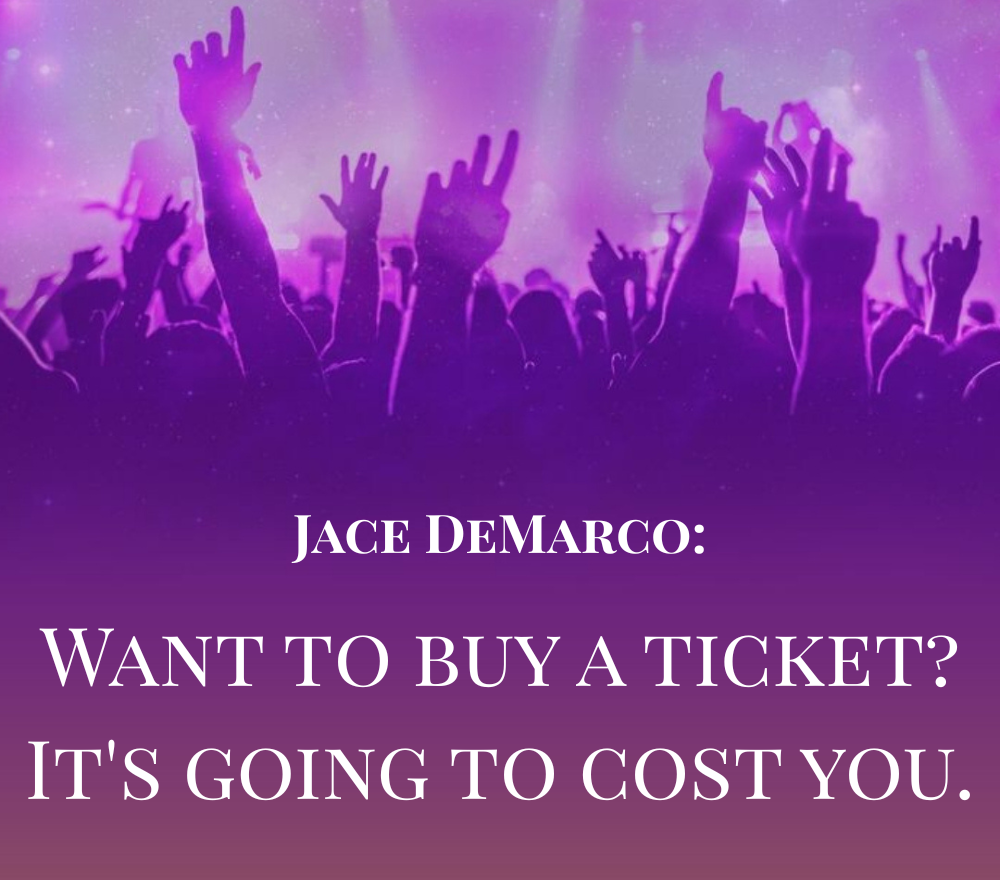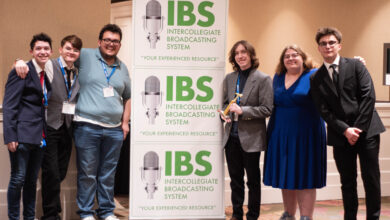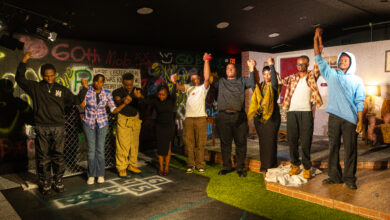OPINION: Want to buy a ticket? It’s going to cost you.
Ticket costs are rising—and it's not only from inflation.
By Jace DeMarco
Picture this—you’re in the online queue for tickets to see your favorite artist or sports star. You count down the number of people ahead of you. And after the long, agonizing wait to finally pick your seat… You discover that even the cheapest tickets are astronomical, and you back out. This atrocity stems from a gradually worsening problem—the market for tickets is becoming more expensive, harming spectators, performers, and venues alike.
Some may attribute this problem to inflation, which is valid as ticket prices have increased over the last thirty years, from $25.81 in 1996 to $135.92 in 2024. However, looking beyond can uncover the truth about why live events have become exorbitant.
Hidden fees make tickets deceptively expensive.
Tickets are not always the price they appear to be at first glance. Hidden fees for services, processing, and other charges add to the face value of bank transactions, hotel bills, and, especially, concert tickets. According to a 2018 Government Accountability Office study, these can account for an average of 27% of the price of primary-market tickets and reach as high as 58%.
Unfortunately, this “bait-and-switch” tactic is necessary for corporations like Live Nation and Ticketmaster to maintain business at the customer’s expense. Five Towns College student Daniel Garcia agrees, but adds that hidden fees “shouldn’t be at the prices that companies have them set at now.”
While some may find the total cost after hidden fees is still reasonable, extra charges inevitably add up, making tickets increasingly unaffordable over time. However, if one does not care about how hidden fees affect their ticket price, they may doubt the impact of secondary-market sales on their overall cost.
Secondary sales only hurt the market.
As tickets sell out, some seats may reopen, but at an exponentially higher price. This practice, known as “scalping”, involves resellers profiting from vulnerable spectators and is increasingly widespread. In fact, Evolve Business Intelligence estimates that global income from secondary ticket sales was $3.21 billion in 2024 and could reach $6.45 billion by 2034.
As scalping traditionally reduces the supply of tickets at original prices, demand becomes insatiable, forcing resale prices to rise sharply. Merchants who would otherwise fail to sell these recycled tickets may benefit from this trend, but it forces consumers to pay much more than they originally planned.
Frequent concertgoer Scott Ray says it should stay legal, “but there has to be a limit to it. […] If you have a ticket that normally goes for $60, and it’s selling for $300, that’s scalping at its finest.” The legality of scalping is debatable, but the legality of corporate practices that set prices in their favor is even more so.
Corporate greed prevents artists from setting fair prices.
When it comes to setting prices, it would be logical for the performer or venue to decide how much their fans should pay to enter. However, this is not the case, as most sales fall under the jurisdiction of Ticketmaster and other corporations. The Federal Trade Commission (FTC), which is currently suing Ticketmaster as of September 18, 2025, alleges that it controls approximately 80% of primary concert ticket sales, which total $82.6 billion from 2014 to 2019.
In a capitalistic society fueled by profit, this key example of corporate control makes it nearly impossible for artists to charge what they perceive as fair ticket prices, leaving fans with little choice but to accept the short end of the stick.
Performer and former concert venue employee Corina Rose says that for smaller performances, the venue allows her band to charge a small door fee, but “when it comes to bigger shows, especially with Ticketmaster or Live Nation, the artist’s control is pretty limited […] which can make the final cost much higher than what the artist originally had in mind.”
How can we ensure fairer prices?
Artists like Taylor Swift and Pearl Jam have passionately expressed their vitriol for industry practices that prevent fair deals on tickets. The FTC now requires ticket sellers to disclose previously hidden fees. However, there is much to be done to ensure affordability for all who await the chance to attend a spectacular event.
Perhaps more artists should speak out or consider boycotting venues that charge such exorbitant prices. For example, rising star Yungblud has voiced his hatred in a BBC interview against greedy industry practices—he has said, “I cannot play a festival where it’s £800 a ticket. How can you stand on stage, and that’s okay [sic]?” The situation drove him to create the music festival BLUDFEST, which allows his followers to see him for a much more affordable price.
Fans can also take action to require other events to follow Yungblud’s example. Start by contacting your local representative about excessive costs and tell them that it’s time to curb unnecessary fees and corporate greed. Until the time comes, exercise caution when evaluating the price of a ticket to avoid unnecessarily depleting your wallet.






